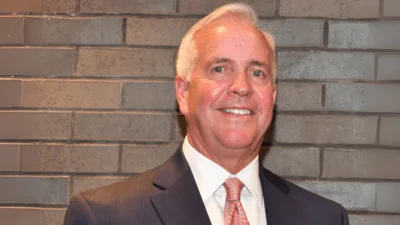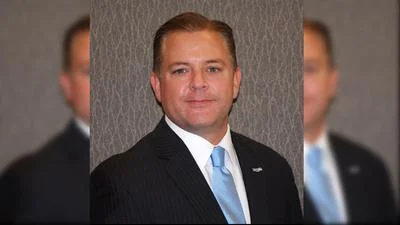Will County Legislative and Policy Committee met September 11.
Here is the minutes provided by the committee:
I. Call To Order / Roll Call
Chair Suzanne Hart called the meeting to order at 9:04 am
Attendee Name; Title; Status; Arrived:
Steve Balich; Member; Present
Suzanne Hart; Chair; Present
Kenneth E. Harris; Member; Present
Tim Kraulidis; Member; Absent
Tyler Marcum; Member; Present
Donald A. Moran; Vice Chair; Present
Judy Ogalla; Member; Present
Annette Parker; Member; Absent
Lauren Staley-Ferry; Member; Absent
Also Present: J. Moustis, H. Brooks, R. Freitag, M. Johannsen.
Present from State's Attorney's Office: M. Tatroe.
II. Pledge Of Allegiance To The Flag
Mr. Moran led the Pledge of Allegiance to the Flag.
Mrs. Hart asked for a moment of silence to recognize the men and women lost on 9-11.
III. Approval Of Minutes
1. WC Legislative & Policy Committee - Regular Meeting - Jun 12, 2018 9:00 am
Result: Approved [Unanimous]
Mover: Kenneth E. Harris, Member
Seconder: Steve Balich, Member
Ayes: Balich, Hart, Harris, Marcum, Moran, Ogalla
Absent: Kraulidis, Parker, Staley-Ferry
IV. Miscellaneous Legislative Reports
V. Old Business
VI. New Business
1. Federal Legislative Update from Smith, Dawson & Andrews
(Jim Smith and Brett Garson)
Mr. Jim Smith stated we are here today to update the County on the Federal Agenda and get a sense of next year’s priorities. An explanation of the process of completing the Federal Agenda was given. This has been a valuable document for the County, particularly with our congressional delegation. It gives them a sense of Will County’s real priorities and it is a good reference document they use throughout the legislative process if they have questions. We submitted the Federal Agenda to the delegation in February after Congress came back in January and had not completed the current year appropriation process. They completed it in March by passing an omnibus bill. The budget was very beneficial and provided funding to many domestic discretionary programs we care about; transportation, housing, law enforcement and job training. Congress is completing the appropriation process for FY19 beginning October 1. Several County Board members came out in May and we had two and a half days of meetings, including congressional members on both sides of the capital; and a number of Federal agencies and the administration, the DOT, HHS and Labor Department. Those are important for our specific agenda and also for building relationships. This was a continuation of the meetings we have been doing for a number of years. When we go back to these agencies they know Will County. You have a good track record, by interaction with them, you have received grants and expended the money wisely and responsibility, which enhances your credibility and reputation at the agencies. Congress was out of session in August, came back after Labor Day and has a full plate of must do items before September 30th. They have yet to enact any standing appropriation bills for the FY19. There are only seven working days left this month; not a lot of time to get a major amount of work done. They will have to revert to a continuing resolution to keep all the federal agencies operating after September 30th , if they are unable to enact the appropriation bills. The big question surrounding that process is whether the President would sign a continuing resolution without full funding for his priorities, immigration and the wall. There is pressure on both sides of the aisle to avert a government shutdown. We will be watching very closely. Other items that must be completed by September 30th include the FAA Reauthorization Act; the House passed a bill and it is in the Senate. There are a lot of differences, and it will be difficult to pass given the short amount of time to get it done. There could be a short term extension of the program. Both the House and Senate have passed the Farm Bill, appointed a conference committee. There are major differences between the House and Senate bills, particularly around the SNAP program and they are meeting this week to work out the differences. The question is whether they can finish by September 30th. The Water Resource Development Act could get done by the end of the month. I believe they may have already wrapped up an agreement. There has been bipartisan support for the WRDA reauthorization. On October 1st Congress will adjourn for the month. More than likely there will be a lame duck session after the election. Often times lame duck sessions prove to be very production and it could be very robust with a lot of unfinished business. A new Congress will be seated in January. Regardless of the outcome, there will be a lot of new faces. There are 80 or 90 members of Congress who announced their retirements, lost the primary or are running for another office. One-third of Congress will turn over in January. New people means a lot more education and a lot more outreach.
Mr. Brett Garson stated we started the year with Ms. Freitag and Mr. Palmer putting together the Federal Agenda. Because of the Freight Study we had some really strong substance to focus on and your infrastructure investment took up a major part of the Federal Agenda. That has positioned you well federally and locally. The details of the study was necessary to put you in a position to get federal dollars. We built around that with infrastructure investment, substance use disorder and economic development. We submitted programmatic requests to every congressional office for federal programs and levels of funding. We let the delegation know some programs need robust funding whether it is Workforce Investment, infrastructure investment or public safety. We covered several different programs the County benefits from. You came to Washington in April while working on several NACo efforts and we combined those with things we were working on. The congressional members know what you are about and they know they will learn about your priorities, which are on point and make sense for what they should be prioritizing. You had great meetings with DOT, FHWA, FAA, HHS and the Substance Abuse Administration within HHS and other departments.
We then debriefed to determine where there were follow up opportunities. Dr. Burke has been fantastic for moving your program forward. We send you competitive grant announcements weekly or biweekly and hold monthly grant calls to make sure we know if you are interested. If you are interested we reach out to find letters of support for your grant application. There are a lot of discretionary dollars and we do a good job focusing, targeting and sending those program announcements to you. The Workforce Investment Board visits annually.
During their last visit we met with every office to make sure they knew all the good things you are doing. Your investment in the Freight Study, strongly positioned you for the federal formula grant dollars awarded for the I-80 and Route 30 project; that was $34 to $38 million. The Plainfield project was $20 million. Getting $50 million is something to note and you are well positioned to move forward. Please have your plans and projects ready to go. The federal government puts out through the State formula or discretionary programs opportunities and we want to go after those funds. We were successful in getting amended language in the Defense Authorization Act and continue to have follow up conversations with the delegation telling them where our economic development priorities are and how they can be helpful. The WRDA did come to an agreement last night; that program deals with all the flood mitigation, part of the U.S. Army Corps of Engineer projects. They are trying to move the process along every two years.
Mr. Moran asked if the Court decision that just came down would immediately be enforced. We are working on flood mitigation; we did a study with the US Corps of Engineers for the DuPage River Watershed. What will happen since the joint conference came to an agreement? How does that change the Court decision on the old version of the bill versus the new bill? Mr. Garson replied the Waters of the U.S. was not part of the Army Corps authorization bill. The Army Corps Authorization bill authorizes a small set of projects that are massive in scope. It could be $1 billion projects for eight to ten projects. The DuPage River Study was probably part of a local Corps effort and not part of this Bill. It looks like the House and Senate will pass at least three appropriation bills before the end of September for the Waters of the U.S. There will be bills for a combination of energy and water, legislative branch and military construction for Veterans. Part of the energy and water bill had language that was stripped out that would have blocked the waters of the U.S. rule. It was too controversial and in order to pass it, it had to be taken out. The Corps case you referenced was a ruling handed down by a South Carolina Judge and impacts 26 states including Illinois. The rule passed by the prior administration on waters of the U.S. is in place. The EPA and Army Corps need to move forward but may be slow moving because they are working on a rule to replace it. Because of the decision they may need to reconsider and make the new administration’s rule process more robust to move forward. There is a court case in Texas that may stay the South Carolina decision and it would impact the whole country and stop the 2015 rule. It has not been decided and we expect to hear something in the next month. If the ruling stays and the 24 states move forward and things are not followed under the jurisdiction there could be litigation.
Mr. Balich stated approximately two years ago there was an initiative to make ditches part of water. Now when water comes out of your gutter and stays it comes under the scope of the Army Corps of Engineers. That would impact our residents in a terrible way. Is that included in this?
Mr. Garson answered that goes back to that 2015 final rule, implemented in 26 states, including Illinois. The old rule is in place because of the court decision. They are working on a new rule and there are court cases to stop the 2015 ruling.
Mr. Balich stated that would be a priority for Will County.
Mr. Garson stated in 2013 we sent in a letter expressing our concerns, some you mentioned. They ended up passing the final rules in 2015 so we are at a standstill.
Mr. Balich stated I am concerned because of flooding issues in my area. The flooding is movable water and it is part of the definition that would make it Army Corps. If someone wants to do something in their yard they cannot, because the Army Corps controls their yard. That is something we have to stop.
Mr. Moran stated in 2015 when the final rule was passed, there was litigation, then the election happened and the new administration decided they would slow walk implementation, if not stop it. Now we have a court decision that said you have to enforce it immediately. The Army Corps of Engineers does not have the ability to enforce it immediately because they don’t have the money. They are still going to slow walk it regardless of what happens in litigation. The case in South Carolina does not have any immediate effect on us and most likely what happens with the conference bill would have a bigger effect.
https://pipeline.locallabs.com/data-entry/leads/1087216





 Alerts Sign-up
Alerts Sign-up